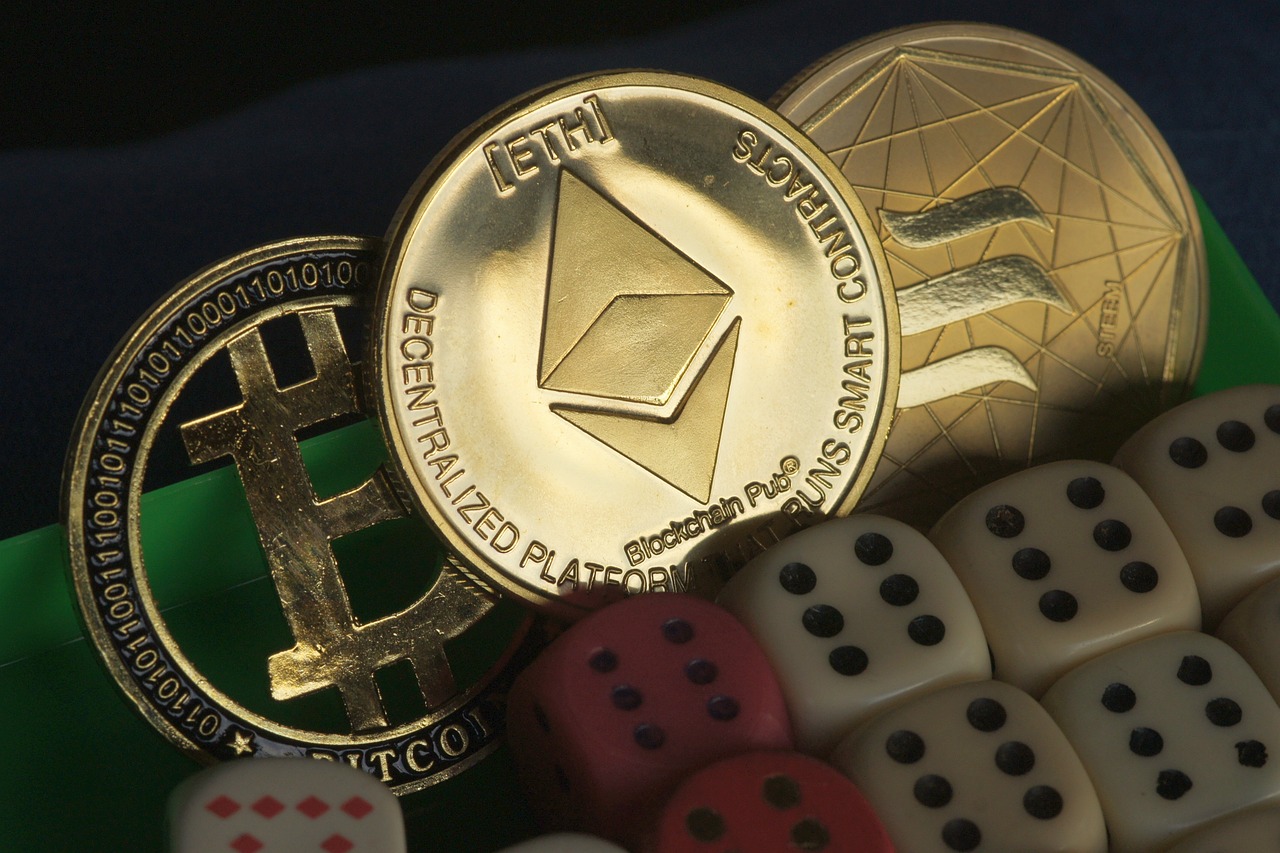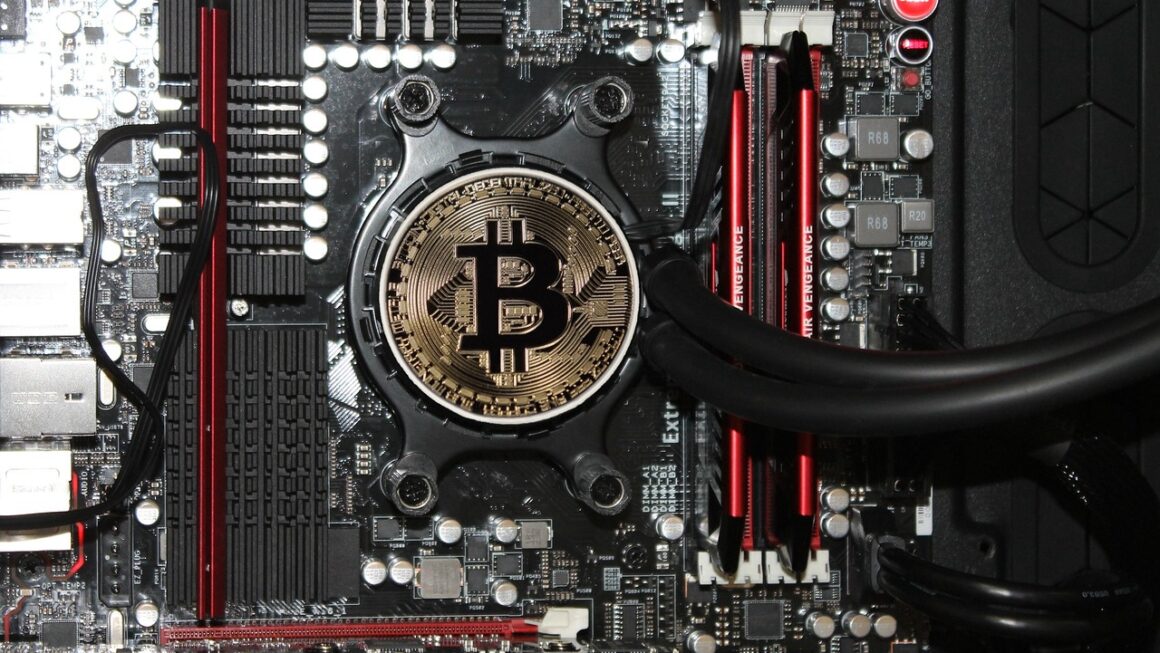Altcoins: Navigating the World Beyond Bitcoin
The world of cryptocurrency extends far beyond Bitcoin. While Bitcoin pioneered decentralized digital currency, it’s just the tip of the iceberg. Enter altcoins, alternative cryptocurrencies that have emerged to address perceived limitations of Bitcoin or introduce entirely new functionalities and use cases. Understanding altcoins is crucial for anyone looking to diversify their crypto portfolio or explore the cutting edge of blockchain technology. This guide will delve into the world of altcoins, exploring their types, benefits, risks, and how to navigate this dynamic landscape.
For more details, see Investopedia on Cryptocurrency.
What are Altcoins?
Altcoins, short for “alternative coins,” are cryptocurrencies other than Bitcoin. They are built using blockchain technology and aim to improve upon Bitcoin’s features or introduce new concepts. Since Bitcoin’s emergence in 2009, thousands of altcoins have been created, each with its own unique characteristics, functionalities, and intended purpose.
The Motivation Behind Altcoins
Altcoins were created for a variety of reasons:
- Addressing Bitcoin’s limitations: Some altcoins aim to improve Bitcoin’s transaction speed, scalability, or energy consumption.
- Introducing new features: Many altcoins offer features not available in Bitcoin, such as smart contracts, privacy enhancements, or different consensus mechanisms.
- Targeting specific industries: Some altcoins are designed to serve specific industries, such as supply chain management, healthcare, or gaming.
- Offering new use cases: Altcoins often explore novel applications of blockchain technology, like decentralized finance (DeFi) or non-fungible tokens (NFTs).
For example, Litecoin (LTC) was created to be a “silver to Bitcoin’s gold,” offering faster transaction times and a different hashing algorithm. Ethereum (ETH) introduced smart contracts, enabling the development of decentralized applications (dApps) and creating a whole new ecosystem within the blockchain space.
Types of Altcoins
The altcoin landscape is diverse, with different types offering varying functionalities and targeting different applications. Understanding these categories is crucial for making informed investment decisions.
Mining-Based Altcoins
These altcoins, like Bitcoin, rely on a proof-of-work (PoW) consensus mechanism, where miners compete to solve complex cryptographic puzzles to validate transactions and earn rewards.
- Example: Litecoin (LTC), Monero (XMR).
- Characteristics: Energy-intensive, decentralized security, potential for mining centralization.
Staking-Based Altcoins
These altcoins utilize a proof-of-stake (PoS) consensus mechanism, where validators are selected based on the amount of coin they hold and “stake.” Staking rewards validators for securing the network.
- Example: Cardano (ADA), Solana (SOL).
- Characteristics: More energy-efficient than PoW, potential for wealth concentration, can earn passive income through staking.
Stablecoins
Stablecoins are cryptocurrencies designed to maintain a stable value relative to a specific asset, typically the US dollar. They aim to provide the benefits of cryptocurrencies (speed, global access) without the price volatility.
- Example: Tether (USDT), USD Coin (USDC).
- Characteristics: Price stability, often backed by reserves of fiat currency or other assets, potential regulatory scrutiny.
Governance Tokens
These tokens give holders voting rights on the future development and governance of a specific blockchain project or platform.
- Example: Maker (MKR), Compound (COMP).
- Characteristics: Decentralized governance, user participation in project direction, potential for influence over key decisions.
Utility Tokens
Utility tokens provide access to a specific product or service within a blockchain ecosystem. They are used to fuel operations within a particular platform.
- Example: Chainlink (LINK), Basic Attention Token (BAT).
- Characteristics: Access to specific services, value tied to the success of the platform, often used to incentivize user participation.
Benefits and Risks of Investing in Altcoins
Investing in altcoins can be potentially lucrative, but it also comes with significant risks. A balanced perspective is essential for informed decision-making.
Potential Benefits
- High Growth Potential: Altcoins, particularly newer projects, can offer higher growth potential than established cryptocurrencies like Bitcoin.
- Diversification: Altcoins can diversify your crypto portfolio, reducing the overall risk exposure.
- Technological Innovation: Investing in altcoins allows you to support and participate in the development of innovative blockchain technologies.
- Potential for Passive Income: Staking-based altcoins can provide passive income through staking rewards.
Inherent Risks
- High Volatility: Altcoins are generally more volatile than Bitcoin, meaning their prices can fluctuate dramatically.
- Liquidity Issues: Some altcoins have low trading volume, making it difficult to buy or sell them quickly and at a desired price.
- Scams and Fraud: The altcoin market is susceptible to scams and fraudulent projects. Always do your research before investing.
- Regulatory Uncertainty: The regulatory landscape surrounding cryptocurrencies, including altcoins, is still evolving, which can create uncertainty and potential risks.
- Example: Investing in a low-cap altcoin promising revolutionary technology can yield significant returns if the project succeeds. However, the project could also fail, leading to a complete loss of investment.
How to Research Altcoins Before Investing
Thorough research is paramount before investing in any altcoin. Due diligence can help you identify promising projects and avoid potential scams.
Key Research Areas
- Whitepaper Analysis: Read the project’s whitepaper carefully to understand its goals, technology, team, and roadmap.
- Team Evaluation: Research the team behind the project. Look for experience, expertise, and transparency.
- Community Engagement: Assess the project’s community engagement. A strong and active community can be a positive sign.
- Technology Assessment: Understand the underlying technology and its potential advantages over existing solutions.
- Market Capitalization and Volume: Analyze the market capitalization and trading volume to gauge liquidity and market interest.
- Tokenomics: Understand the token distribution, supply, and potential inflationary or deflationary mechanisms.
- Example: Before investing in a DeFi altcoin, research its tokenomics, team credentials, smart contract security audit reports (if available), and community participation to assess its potential for growth and long-term viability.
Useful Resources
- CoinMarketCap & CoinGecko: Track price data, market capitalization, and trading volume.
- Project Websites & Social Media: Stay updated on project developments, announcements, and community discussions.
- Blockchain Explorers: Verify transaction data and track token movements.
- Crypto News Outlets & Research Firms: Stay informed about industry trends and expert analyses.
- Community Forums (Reddit, Discord): Engage with other investors and learn from their experiences.
Storing and Trading Altcoins
Choosing a secure and reliable method for storing and trading your altcoins is essential for protecting your investments.
Wallet Options
- Hardware Wallets (Cold Storage): Offer the highest level of security by storing your private keys offline. Examples: Ledger, Trezor.
- Software Wallets (Hot Storage): Convenient and readily accessible on your computer or mobile device. Examples: Exodus, Trust Wallet.
- Exchange Wallets: Convenient for trading but generally less secure than hardware or software wallets.
Exchange Selection
- Reputation and Security: Choose reputable exchanges with strong security measures.
- Liquidity: Opt for exchanges with high trading volume to ensure you can buy or sell altcoins quickly.
- Coin Listings: Select exchanges that list the specific altcoins you want to trade.
- Fees: Compare trading fees across different exchanges.
- Regulation: Consider exchanges that comply with relevant regulations.
- Example:* For long-term storage of a significant amount of altcoins, a hardware wallet is generally recommended. For frequent trading, a reputable exchange with robust security and high liquidity is more suitable.
Conclusion
The world of altcoins offers exciting opportunities for innovation and investment. However, it’s crucial to approach this market with caution, conducting thorough research, managing risk effectively, and understanding the technology behind each project. By staying informed and employing sound investment strategies, you can navigate the altcoin landscape with greater confidence and potentially unlock significant returns. Remember to only invest what you can afford to lose, and prioritize security when storing and trading your altcoins.
Read our previous article: AI: Harmonizing Human Ingenuity With Machine Intelligence




